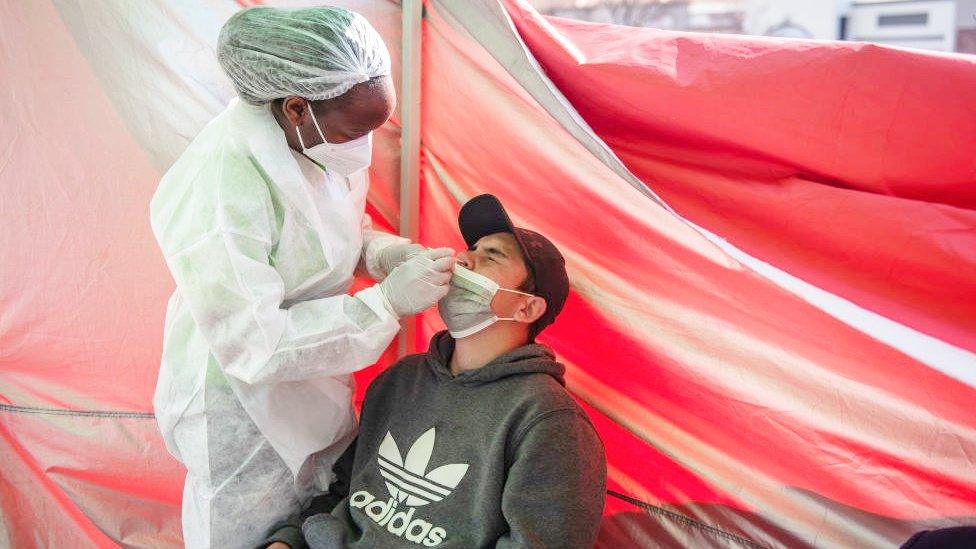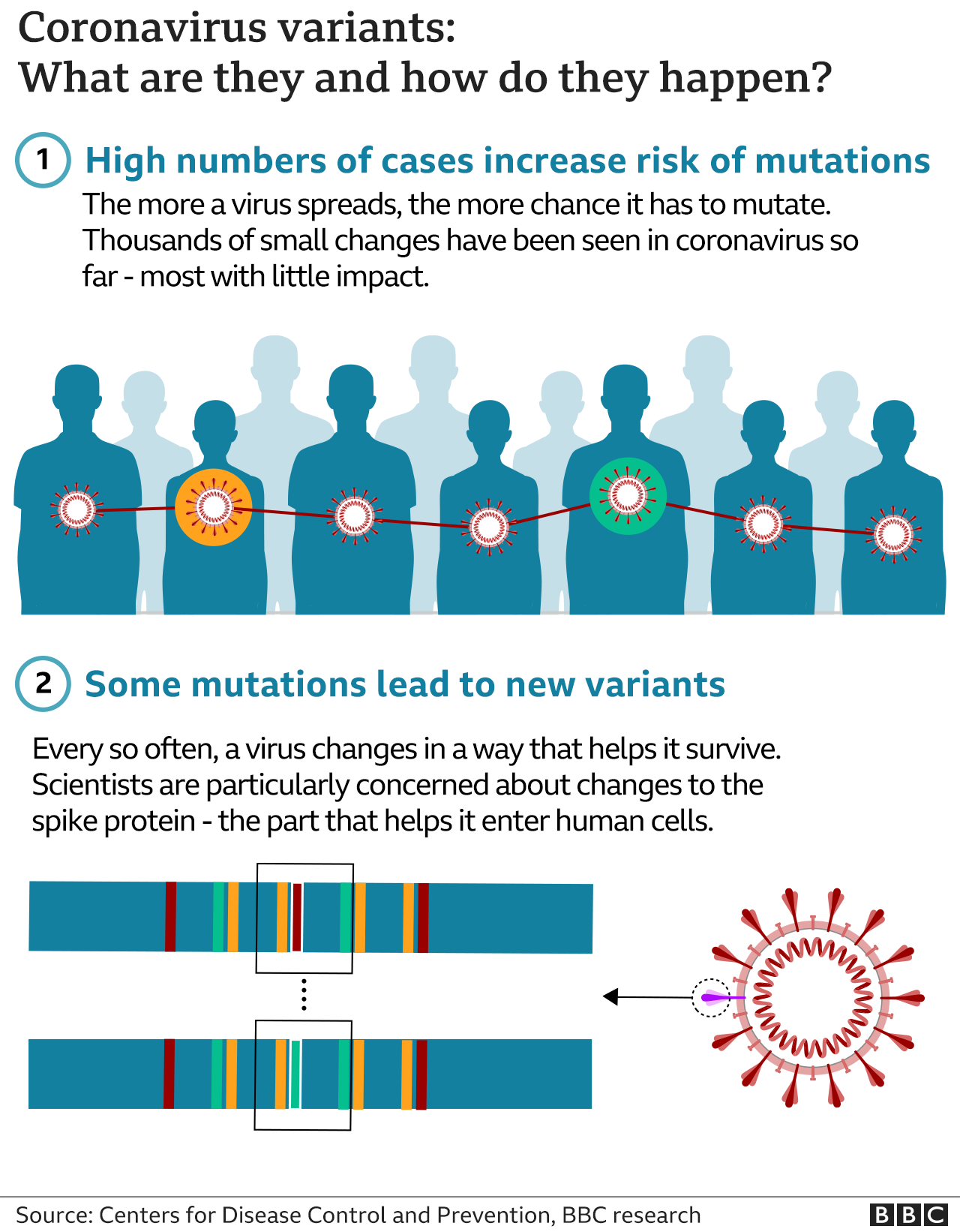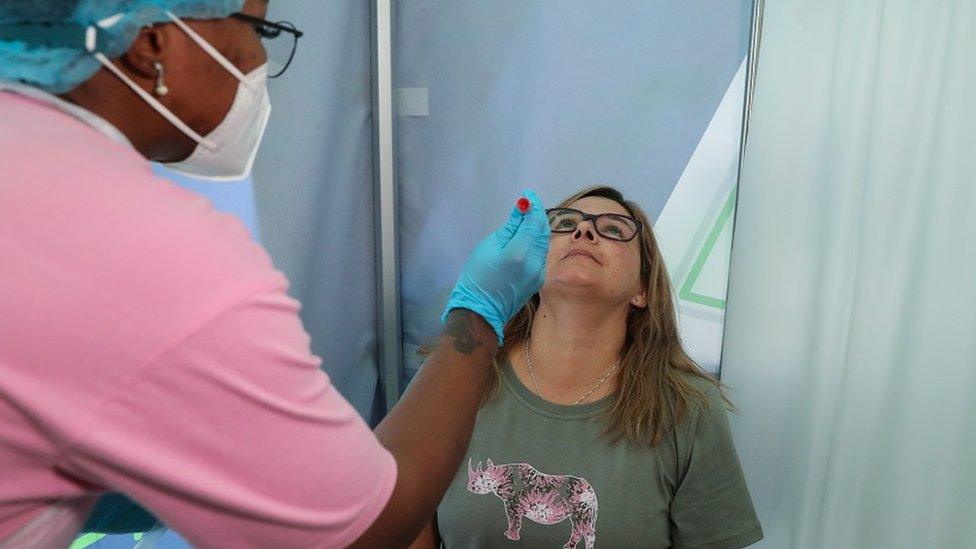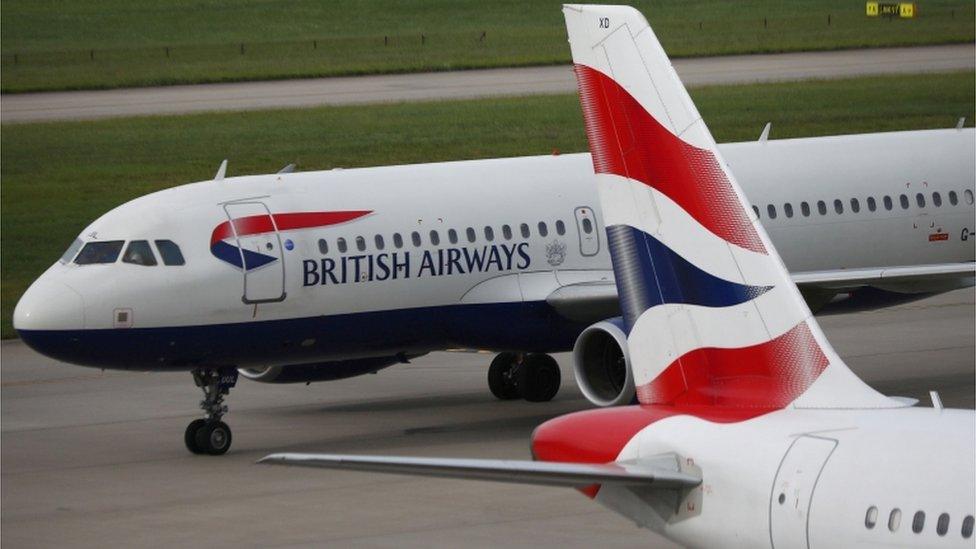Covid: US joins EU in restricting travel from southern Africa
- Published

The US will restrict travel from South Africa and seven other southern African countries to try to contain a new coronavirus variant spreading there.
From Monday, only US citizens and residents will be allowed to travel from the region.
This follows similar restrictions imposed by the EU and the UK. Canada is also introducing travel restrictions.
The World Health Organization (WHO) earlier declared the new variant to be "of concern", naming it Omicron.
US officials said travellers from South Africa, Botswana, Zimbabwe, Namibia, Lesotho, Eswatini, Mozambique and Malawi will be blocked, mirroring earlier moves taken by the EU. The ban will come into effect on Monday.
In a statement, President Joe Biden called the move a "precautionary measure" taken until more is known about the variant.
Canada is also shutting its borders to foreign travellers who have recently been to South Africa, Namibia, Lesotho, Botswana, Eswatini, Zimbabwe and Mozambique. Foreign citizens will be banned from Canada if they have been to the seven nations in the past 14 days.
The Omicron variant was first reported to the WHO from South Africa on 24 November, and has since been identified in other countries.
South Africa's health ministry has criticised the rush to impose new travel restrictions, calling them "draconian", and contrary to WHO guidance.
Scientists say they still have much to learn about the virus's new mutations, and the WHO has said it will take a few weeks to understand the impact of the new variant, as experts work to determine how transmissible it is.
The WHO on Friday said preliminary evidence suggested the new variant carried a higher risk of reinfection than other variants.
Scientists have said it is the most heavily mutated version yet, which means Covid vaccines, which were designed using the original strain from Wuhan, China, may not be as effective.
The WHO says so far fewer than 100 sample sequences have been reported. Cases have mainly been confirmed in South Africa, but have also been detected in Hong Kong, Israel, Botswana and Belgium.
Most of the cases in South Africa have been from its most populated province, Gauteng, of which Johannesburg is the capital city.
The WHO has warned against countries hastily imposing travel restrictions, saying they should look to a "risk-based and scientific approach".
Travellers at Cape Town airport respond to new UK quarantine measures over Covid variant
South African Health Minister Joe Phaahla told reporters that the restrictions were "unjustified".
But health officials in the Netherlands warned that passengers on two KLM flights from South Africa to Amsterdam on Friday were likely infected. Tests were being done to determine whether it could be the new variant.
Passengers travelling from Cape Town to Manchester via Amsterdam told the BBC that they were held on the tarmac at Schiphol Airport in the Dutch capital for four hours, before eventually disembarking to take PCR tests.
Meanwhile, the flight bans threaten to separate families over the festive season.
Ruth Daines-Slack, 70, had booked to fly from Cape Town to the UK next week for Christmas and her mother's 100th birthday celebration. She told the BBC she is "beyond devastated" that she will no longer be able to make the trip, adding that the UK's travel ban is a "knee-jerk reaction".


- Published26 November 2021

- Published11 February 2022

- Published5 July 2022

- Published26 November 2021
